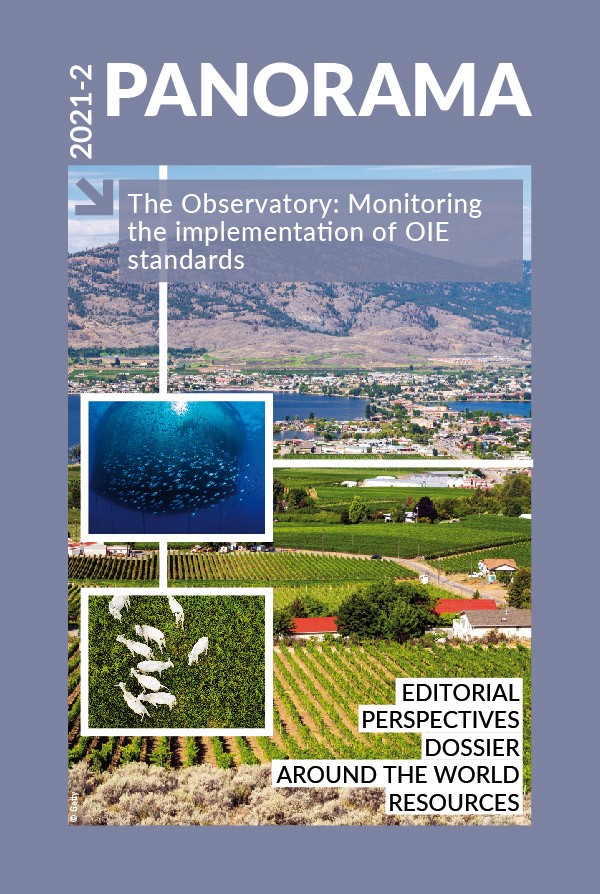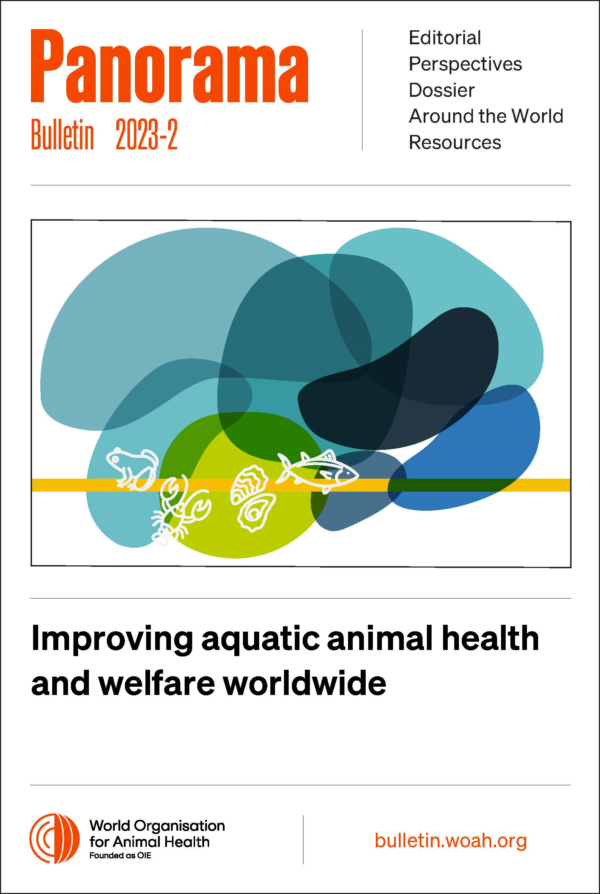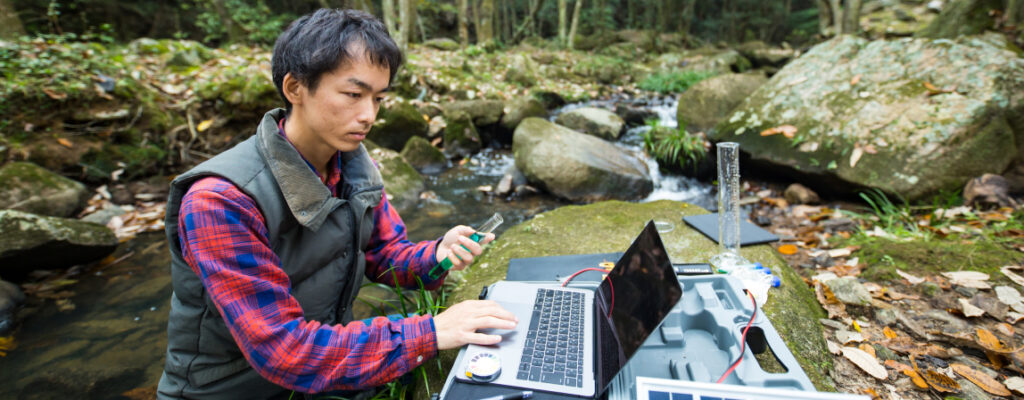Dossier Posted on 2021-12-20 15:11:25
Shining a light on laboratory sustainability
Links to the PVS Pathway and the OIE Observatory
Keywords
Authors
Jennifer Lasley, Preparedness and Resilience Department, World Organisation for Animal Health (OIE).
Thanks to the generous support of Global Affairs Canada, data from the OIE-PVS Laboratory missions are being harnessed to gather evidence about challenges to laboratory sustainability. These insights will enlighten Members and the OIE on how we can improve laboratory sustainability around the world. This activity contributes to the OIE Observatory’s mission to better understand and monitor the implementation of OIE international standards, mainly by placing the evidence centre stage.
Evidence on the implementation of OIE international standards by Members, relevant to laboratories, is easier to access and update
Data visualisation, Web portals, and electronic forms will allow more dynamic monitoring of the implementation of OIE international standards; in particular, Part 1 of the OIE Manuals [1, 2] and the chapters of the OIE Codes relevant to laboratory practice [3, 4].

Outputs from the Sustainable Laboratories Tools, currently under development, will provide insights which can facilitate trade negotiations, audits, and PVS evaluations. This approach will also allow Members the opportunity for self-evaluation by democratising access to PVS Pathway tools and analysing dynamic trends.
Evidence on the performance of laboratory systems can be used for the evaluation of PVS Critical Competencies
Insights provided by the PVS Laboratory missions (the first to be delivered 100% virtually in March 2021) should make data entry easier, and provide better-quality data, greater understanding, seamless continuity of data throughout the PVS Pathway, and increased access for more Members.
With the digitalisation of the PVS Laboratory methodology and data, PVS Experts and Members can make full use of these data and tools beyond the PVS Laboratory mission, and can better determine the level of advancement of Veterinary Services for those PVS Critical Competencies relevant to laboratories.
Evidence can inform advocacy for appropriate investment in sustainable laboratory systems
Evidence-based policies and decision-making are more essential than ever, since the COVID-19 pandemic has shown the importance of laboratory preparedness and sustainability. Investments will need to be carefully considered for long-term improvements and should focus on sustainable performance, quality, safety, security, and competency.
Using this approach, the OIE can ensure that the standards it develops are relevant and fit for purpose, and that the OIE’s capacity-building efforts are more effective at meeting its Members’ needs.
________________________________________
(1) Dark data: ‘Information that is collected but not yet used to derive insight for decision making’. Source: Wikipedia (2020). https://en.wikipedia.org/wiki/Dark_data.
https://doi.org/10.20506/bull.2021.2.3286
References
- World Organisation for Animal Health (OIE) (2021). – Part 1. General standards. In Manual of Diagnostic Tests and Vaccines for Terrestrial Animals.
- World Organisation for Animal Health (OIE) (2021). – Part 1. General provisions. In Manual of Diagnostic Tests for Aquatic Animals.
- World Organisation for Animal Health (OIE) (2021). – Terrestrial Animal Health Code.
- World Organisation for Animal Health (OIE) (2021). – Aquatic Animal Health Code.










